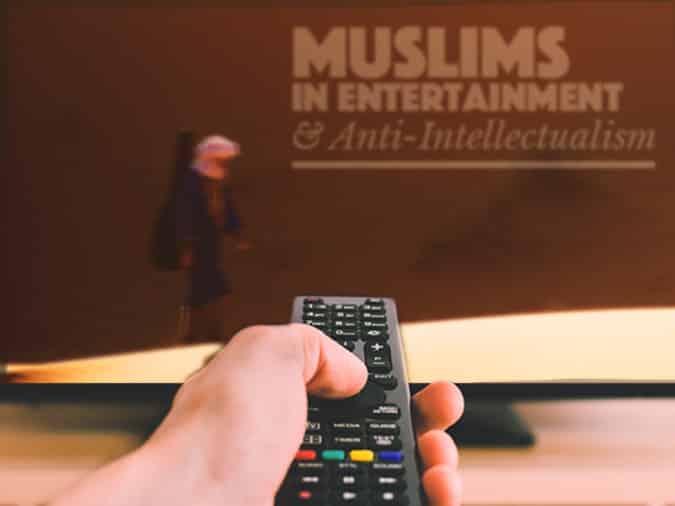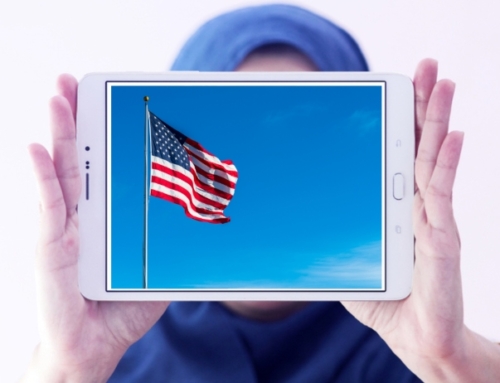Unraveling the Misconceptions
Over the past several decades, Muslims have been portrayed as “mysterious” and “radicalized” in different platforms from news to entertainment. Political officials have used international events and organizations to highlight extremism and violence. Early examples like the Iranian hostage crisis, mujahideen, and the Gulf Wars planted misconceptions about the realities of Islam, culture, and the political complexities that are multi-faceted. Stressing American values and American interests, political officials have been able to reach a greater audience through entertainment that draws on tidbits of Arab culture or Islam and runs with it to create a false narrative of “Islamic ulterior motives” and “radicalization”.
TV Dramas and Muslim Stereotypes
In the past ten years, dozens of shows have been created with the premise of “terrorism vs. US government.” Americans become hooked and political officials see it as a way to garner patriotism/national pride, support for American interests, and other political and economic values. However, negative stereotypes and misconceptions are created because the entertainment business only paints a negative picture of Muslims and Arabs, taking surface level bits of information (like the episode titles in Sleeper Cell being the first two chapters of the Qur’an). Today, more examples are being planted in American minds with new entertainment pieces revolving around “radicalization from ISIS”, American tourists being kidnapped, and the Arab Spring, but ignore serious matters like the wars in Syria and Yemen (because American interest is minimal). Americans who realized that the Iraq War was not beneficial for America became disheartened by the efforts and in order to increase support, entertainment has been a way for Americans to see “the possibilities” on a local level and how it affects them on a direct level. Nevertheless, the reality is nowhere near as imminent as the dramatized episodes paint it to be.
Muslim Portrayals in American TV Shows
Even when there are Muslim heroes portrayed in American television series or movies such as Sleeper Cell, they’re still involved in violence and revenge. This influences viewers into thinking that Muslims and Islam are inherently violent, which often results in Muslims being racially profiling. Despite their many contributions to American society, American Muslims are still portrayed as people of suspicion. This builds and promotes dark idea’s towards a generalized group of people and this is how racism is developed. TV shows like Homeland bring in huge audiences and cause Americans to question their Muslim neighbors and fellow citizens.
Media’s Role in Perpetuating Stereotypes
This is also evident in other marginalized groups in America such as African-Americans who are often shown as thugs, criminals, or thieves and which created a mindset of associating African Americans with danger and violence. Just like America has created the false-narrative that African Americans are criminals and gang members without addressing the deeper history of systematic discrimination that has plagued the community socially and economically, America continues to show Muslims in the light of “terrorists” without showing (and if anything, hiding) the United States’ involvement in arming and financially supporting many of the groups that we later declare as enemies. This includes Al-Qaida, financial support for different groups during the Arab Spring, support for Iraq (under Saddam Hussein) during the Iraq-Iran war.
Entertainment and Anti-Intellectualism in a Post-Truth Era
We live in a post-truth time, and a time where people reject facts with emotion or tribal allegiance to political parties. This did not just pop out of nowhere, but has gradually increased over time. This is partly because entertainment, not truth, is manufactured and outsourced. Former president Bush personified the new, anti-intellectualism. He and the others who were responsible for the invasion of Iraq under the false premise of WMD didn’t deny the facts of death in Iraq, Afghanistan, and the terrorist diaspora, rather they dismissed the facts with disdain and media is used to desensitize people to the horrible atrocities that were taking place. On several occasions, Bush joked about the mistake he made, such as when he jokingly looked for WMD under his desk. Thousands of lives were lost in this war and Bush’s public joking about no WMD was done so casually as if the failed operation and lack of rationale were just a big “oops.” Addressing the situation from an entertainment standpoint made it easier to get away with what had happened without as many people seriously questioning the motives and outcome.
Impact and Consequences on Society
Facts were dismissed and there was no ownership for destroying an entire country and the loss of 500,000 lives. Post 9/11 producers and policy makers realized that entertainment, not facts, engages the public. They have a narrative that they want to push and they subliminally prime people to accept information the people would normally reject. By covertly introducing radical ideas subliminally into a show or movie, the idea becomes normalized as it gets re-introduced over and over again into the minds of people watching. Entertainment became the means of having discourse and we witnessed in our last presidential elections, it was not intellectual discussions of the future of our country, but rather simplistic arguments and a match of insults. Ultimately, movies and television shows depicting Muslims in a negative light are often dismissed as “just entertainment” but they contribute to much larger societal problems. They create division in America, cause suspicion of innocent American Muslims, and create an “us vs. them” or “with us or against us” simplistic understanding of the world. We have long been laughing, mocking, and stereotyping minorities in this country without taking context and facts into consideration.
Defending Truth and Intellect
We did not arrive in the anti-intellectual world we are in today out of nowhere, rather it has been gradually building up for a long time. We have the opportunity and obligation to promote truth, facts, and accountability. Otherwise, we risk going further down the path of anti-facts and anti-intellectualism.
Got Questions?
We have Answers. Get in touch now.








